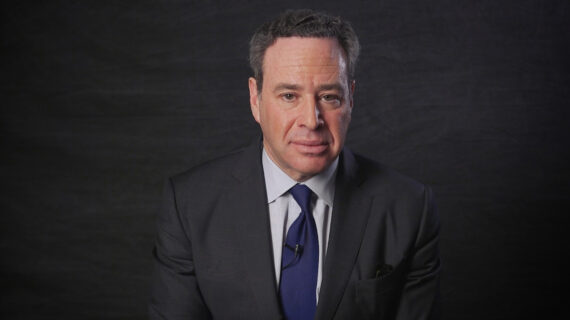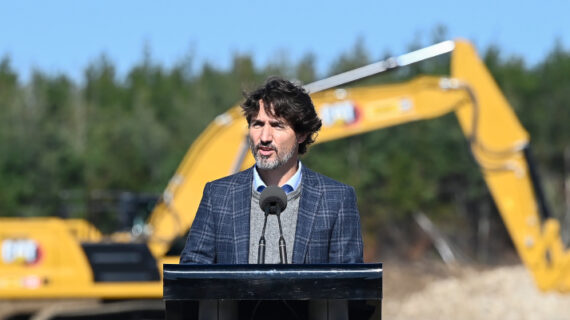- The 2022 amendment to Bill C-21, the government's latest gun control legislation, attempted to define “assault-style firearm.” However, the proposed definition encapsulated a variety of firearms popular with hunters, including those used by Indigenous subsistence hunters.
- According to Calibre magazine editor Daniel Fritter, the last three years of erratic policies have shattered the trust between the gun community and the government, and he worries we’re getting “farther and farther from reconciling” as laws continue to tighten.
- "Canada has the most important gun control laws, as far as preventing mass tragedies and gun violence, in that we have licensing,” says Dr. Schwartz of the University of the Fraser Valley. "The licensing system Canada has does a good job of...stopping bad faith actors from getting access to guns within the legal market."
This is part two of The Hub’s latest three-part series on gun control policies in Canada. You can read part one here.
Who uses guns in Canada? What does and does not prevent gun violence? The answers have been misshapen by our reliance on American media.
“The image of Canadian gun owners is entirely shaped by our view of the United States,” says the University of the Fraser Valley’s Dr. Schwartz. “Prime Minister Trudeau often accuses the CPC or pro-gun advocates in Canada of being tied to the NRA when I’ve come across no evidence of that. Politicians use those misconceptions to sell policies in ways I feel are unscrupulous.”
In America, guns have a metaphysical connection to national identity. There is no Canadian equivalent to that intangibility.
“Canadian gun owners tend to think of gun ownership in practical terms,” Dr. Schwartz says. “This is a tool for hunting, for sporting competitions. Whereas American owners tend to see guns as an expression of political values.”
And so while Americans tend to see guns as objects they are entitled to, in Canada they are a privilege to earn.
“They’ve only ever been granted to those with the time and money to take the required courses and tests,” says Calibre Magazine editor Daniel Fritter. “The licensing process takes great lengths to drill it into every gun owner’s head that owning a gun is a privilege and can be rescinded at any time by the authorities. The people that successfully navigate this process feel they’ve passed a purity test.”
American gun owners are generally proud the government cannot regulate them; Canadian owners are generally proud they obey regulations. Non gun owners generally fail to appreciate the difference. This, then, is why guns are an easy political target, yet also why there was a backlash to C-21, the government’s gun control bill that passed the House of Commons earlier this year. Gun owners dutifully followed the rules, and then the rules changed.
“Gun owners see themselves as highly scrutinised citizens, and these bans represent a betrayal of the deal they made with the government,” Dr. Schwartz says. “Background checks are very invasive. And they feel like after they go through them they should be allowed to keep the firearms they’ve owned and used safely for decades.”
Tools can be misused, and if legal gun owners were suddenly committing reams of crimes there would be an argument for rescinding their privileges. But legal firearms are generally not the source of Canada’s gun woes.
“The popularity of these policies stems from their simplicity,” says Dr. Schwartz. “When you see Prime Minister Trudeau make some of these announcements, there’s a photo of him standing at a podium and he’s got a picture of a scary-looking rifle with a big X through it. People are familiar with the iconography from watching the American news, they don’t really know much about how the laws are different in Canada. So it’s a very easy sell to say ‘Let’s ban these rifles.’”
The Sig Sauer MCX, used to murder 49 people in Orlando in the deadliest attack on LGBT people in American history, and the AR-15, used to commit more mass shootings in America than we have the space to name, are illustrative examples. Both, thanks to their murderous American reputation, were highlights of Canada’s 2020 ban. But unlike their American counterparts, both were regulated by several Canadian laws, including a high-capacity magazine ban. It appears the last time an AR-15 was fired criminally in Canada was in 2004 when a botched drive-by left a bystander paralysed.
Conversely, the SKS rifle—used in the 2018 Fredericton shooting, the 2019 BC spree killings, and the 2022 murder of two Ontario police officers—was ignored in the 2020 ban, hit by the late 2022 amendment to C-21, then given a new lease on life after that amendment was rescinded. As a popular hunting rifle, it will remain legal, in an example of the complexity—or, less generously, the meandering inefficacy—of targeting specific firearm models.
The 2022 amendment to C-21 attempted to define “assault-style firearm,” which the government had previously used without meaning, making gun talk nebulous and open to criticism from across the political spectrum. However, the proposed definition encapsulated a variety of firearms popular with hunters, including those used by Indigenous subsistence hunters, who were not consulted on the amendment. Hunting rights, Dr. Schwartz argues, are the closest Canada has to America’s Second Amendment, in that encroaching on them mobilises otherwise indifferent voters. Roughly three million Canadians own firearms. That is not a trivial voting bloc, which is presumably one reason the cheap and popular SKS was ultimately left alone despite its role in several high-profile shootings.
“The C-21 amendments were mismanaged,” Dr. Schwartz says. “The Liberals didn’t consult with the NDP or Bloc. They came out of nowhere. I don’t think popular support always makes for good policy, but from a political perspective [C-21] did have a lot of support. And they seemed to have squandered that. Carey Price coming out and using his celebrity to voice his opposition, I’ve never seen a celebrity speak out on the pro-gun side before.”
If you don’t own or care about guns, it can be easy to shrug and say a ban will not affect you. But research indicates bans of specific firearms will accomplish little—one rifle is not inherently deadlier than another. And even if you are indifferent to the feelings of gun owners, there are practical and logistical obstacles to yanking hundreds of thousands of firearms out of circulation.

“The 2020 order that banned 1,500 models of so-called assault-style firearms, three years later it hasn’t been implemented, there isn’t even an infrastructure in place, it’s going to prove much more expensive than the government initially pitched,” says Dr. Schwartz. “So these are not costless policies. And when you’re a policymaker you have to think about how to get the most public good while investing a level of resources that is responsible.”
To understand why C-21 feels aimless, we must understand what does prevent gun violence. In 1993, Canada banned high-capacity magazines as part of the response to the 1989 École Polytechnique shooting, limiting semi-automatic rifles to five rounds per magazine. Based on several American studies, this appears to limit the lethality of misappropriated firearms.
Dampening the power of civilian firearms struck a simple and effective balance between allowing guns as a tool while limiting them as a threat, but controlling who we allow to own a gun is ultimately more effective than controlling what guns we allow someone to own. For example, a disgruntled Canadian cannot visit a gun dealer and walk out an hour later equipped to commit a shooting spree.
“Canada has the most important gun control laws, as far as preventing mass tragedies and gun violence, in that we have licensing,” Dr. Schwartz says. “All guns are dangerous if they’re in the wrong hands. The licensing system Canada has does a good job of looking at peoples’ backgrounds and doing that risk assessment and stopping bad faith actors from getting access to guns within the legal market.”
According to Fritter, the last three years of erratic policies have shattered the trust between the gun community and the government, and he worries we’re getting “farther and farther from reconciling” as laws continue to tighten.
“I think there has to be a way forward, but I have serious concerns about our ability to get there,” Fritter says. “Guns are part of identity politics now, and those are so hard to disentangle. I think the easiest route towards a Canada where gun owners have a functional relationship with the government is if the NDP adopts a more pragmatic approach. They can just say, ‘Nope, we’re not going down this road.’ Jack Layton did, and it worked phenomenally to everyone’s benefit. But the Liberals seem so entrenched, and the deeper they dig, the harder gun owners will demand the CPC answer back.”




